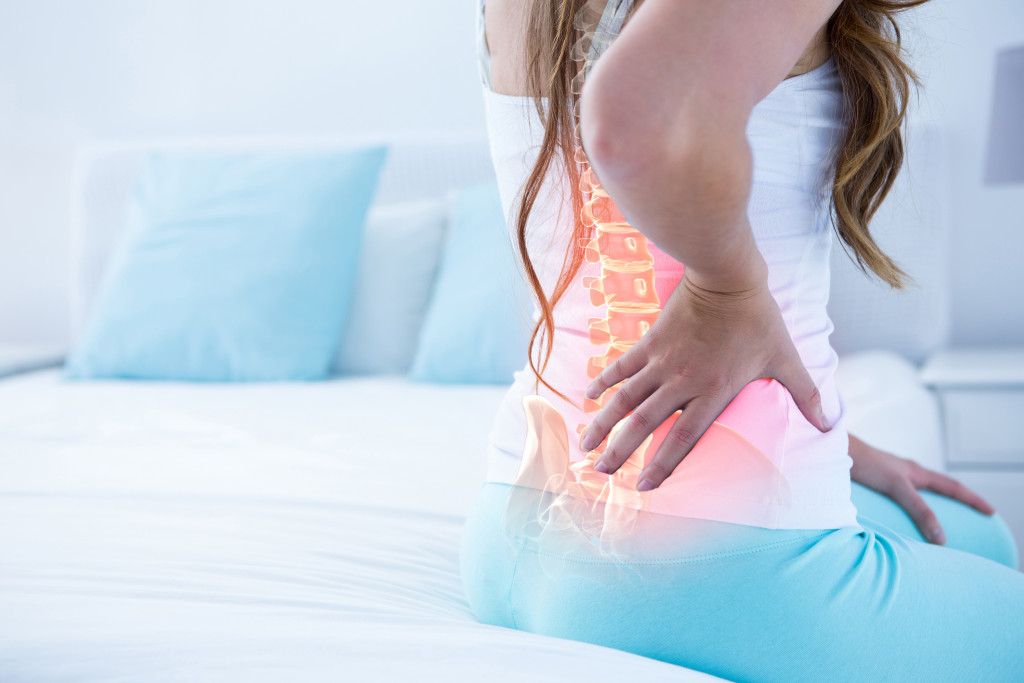Suffering from disc herniation is no joke. It causes so much back pain so much pain in the back and anxiety-inducing numbing or tingling in the arms, shoulders, back, legs, hands, and feet. The disease can also cause so much discomfort and pain in the neck and disrupt people’s ability to straighten or bend their spine. It’s a health problem that can be caused by an injury, wear and tear on the spine, or a combination of both.
It can be particularly painful for those who love staying active, like athletes and dancers, which is why sports recovery and therapy are crucial for sufferers who want to experience a semblance of wellness in their spines. But at the same time, immediate relief for pain is also necessary since we can’t always be with our therapists and doctors 24/7.
If you or someone you’re caring for are suffering from back pain related to disc herniation, here are some pain relief tips and pointers you need to know.
Find ways to relieve the inflammation
If the disc herniation is still on the mild side, find ways to relieve the inflammation by applying an ice pack or a heating pad to the area that’s most affected. It’s a short-term solution for the pain, and it can numb the discomfort for a few hours. Make sure to do this for ten to 15 minutes per day. You can do it while laying on your stomach with a pillow under your hips.
Take it easy on your body
If your job requires you to move around or do some strenuous physical activity, pain in your back is your body’s way of telling you to slow down or stop altogether. If you must do some movements, be careful with your body and take as much caution as possible because you need to lessen the pressure on your spine. Here are some essential tips for taking it easy on your back:
- Don’t wear high heels for the foreseeable future.
- Sleep on your stomach instead of on your back or your side.
- Avoid standing or sitting for long periods. Make sure to stand up and carefully move around your room during a busy workday instead of staying still. But if you must move, make sure to take it slow.
- Avoid carrying heavy objects and try not to reach or bend too much throughout your day.
- Be mindful of the proper posture.
Try over-the-counter pain medication
Moderate pain for a herniated disc can be relieved through over-the-counter (OTC) medications like ibuprofen, naproxen, acetaminophen, and other popular options. There are also some creams and ointments that can help numb the pain for a few hours. But once again, since these medications only provide temporary relief from the discomfort, your best bet is still to acquire a more permanent solution through your doctor.
Consider getting a therapeutic massage
Ask your physician if they can recommend a masseuse specializing in back pain and if it’s safe and healthy for your specific case to undergo therapeutic massage. Specialists in recovery centers are also often trained in this area, and not just in physical therapy, so going to an all-inclusive center might be helpful since you would get to experience every kind of rehabilitation step possible.
Try moderate exercise
With your doctor’s recommendation, you might find that staying physically active might provide a healthy distraction from your pain. Since studies show that exercise releases endorphins in the body, it can help enhance your mood throughout the day and might lessen your experience and perception of pain. Here are some moderate exercises you can try throughout your day:
- Taking a walk outdoors or even on a treadmill. Doing a lap in one of your town’s shopping malls might be a good idea, too, since the visual stimulation can distract you from the discomfort.
- Going on the elliptical trainer for a few minutes.
- Water-based activities like swimming or hydrotherapy can also help alleviate some of your pain since the buoyancy counteracts gravity, taking some of the pressure and load off your spine.
Consult your doctor
Last but not least, consult your orthopedic doctor as soon as possible. No pain relief can help address the root cause of the problem, which is herniation itself. Don’t try to suffer in silence or endure the pain on your own, even if 90 percent of herniated discs heal by themselves. Let your doctor help you alleviate the pain from the injury while you wait out its healing. Don’t let the pain rob you of happy days.


